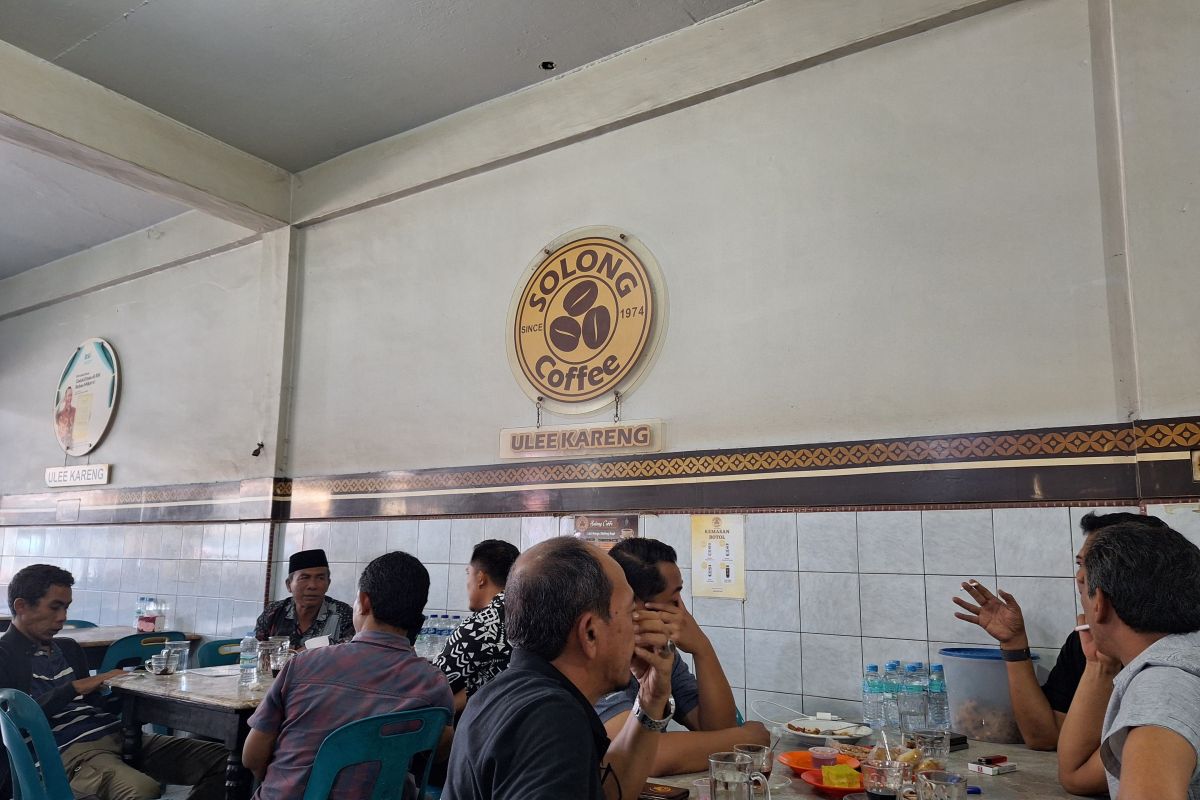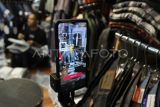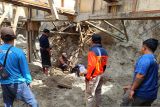Banda Aceh (ANTARA) - Rows of coffee shops—ranging from traditional stalls to modern cafes—are a common sight on the streets of Banda Aceh.
The shops never seem to be empty of visitors. Benches are mostly occupied or bursting with customers — young and old, men and women — who can be seen mingling, chatting happily, and sipping coffee at the shops from morning to evening.
And not without reason. Aceh is known to the world as one of the producers of premium-quality coffee. Gayo Arabica coffee, for example, has a special place in the hearts of foreign coffee lovers — to the point of being categorized as specialty coffee.
The coffee produced from plantations in the Gayo highlands is known to have a distinctive aroma with a complex flavor and strong body.
The Specialty Coffee Association of America (SCAA) has regularly placed Gayo Arabica coffee at the top of every cupping test assessment, with an average score of 86–90 points.
To put a coffee in the specialty category, the SCAA only needs a taste test expert to give it a score of 80 points in the cupping test. Coffee shops in Aceh generally serve three kinds of coffee: black coffee, milk coffee, and sanger coffee. At first glance, sanger coffee looks similar to milk coffee.
The difference lies in its composition: sweetened condensed milk and sugar are added to the coffee in such a way that the aroma of the coffee remains dominant. Another distinctive feature of this coffee is its foam, which comes from the coffee being shaken before serving.
Coffee has indeed become a part of the lifestyle and social institutions of the Acehnese people. And the culture has been alive since the era of Dutch colonialism in Indonesia.
Acehnese anthropologist from the State Islamic University (UIN) Ar-Raniry Banda Aceh, Reza Idria, highlighted th Acehnese people's habit of sitting together and chatting at a stall or a public space, including the cultural characteristics of the people on the coast of the Strait of Malacca.
"Maybe those who enjoy it are different. In the Malay world, there are people drinking teh tarik and all sorts, while in Aceh, they drink coffee," he said.
The phenomenon of coffee being the favorite drink of the Acehnese people cannot be separated from the influence of the Dutch colonialists. The Dutch brought coffee beans to Aceh and opened many coffee plantations there.
The entry of coffee into Aceh encouraged the emergence of coffee shops that were used by the community as a place to socialize and gather freely.
In the villages, coffee shops often sit near mosques so that when the call to prayer sounds, residents can reach the mosque more easily.
This has helped create a positive association with coffee among the Acehnese people who like to socialize and still uphold the values of Islamic teachings
Coffee shops and conflict
Idria said that the habit of people hanging out at coffee shops is also related to the Free Aceh Movement (GAM) that tore through the region several decades ago.
At that time, coffee shops were one of the safest places for people to gather. The reason is that when the conflict was at its peak, security forces often entered villages to search for GAM personnel.
This led to the assumption among the community that anyone who was not seen in a coffee shop or in their village for several days had most likely joined GAM and gotten arrested.
"So, being in a coffee shop also became a space for people to keep seeing each other, making sure that... oh (this person) is still around us or if, for example, there was a sweeping (by the authorities), that person was in their coffee shop," Idria explained.
This ultimately led people to frequent public spaces, including coffee shops. During the conflict, coffee shops were also often used as a space for exchanging information. After GAM and the Indonesian government reached a peace deal, more coffee shops emerged to cater to increasing public demand.
This was because the Acehnese people were now more free to carry out activities after years of conflict and on the back of economic improvements after the 2004 tsunami.
Social spaces and practical politics
Their neutral image and relaxed and informal atmosphere make coffee shops the choice of people for various activities. Since the Dutch colonial era, the popularity of coffee shops as a place to gather and socialize has never faded or changed.
They are the most common hangout choice for chatting with friends.
According to Idria, coffee shops in Aceh first developed in coastal areas. This is due to Aceh's strategic location on sea trade routes so its area, especially the coast, became a place for interaction among people from various backgrounds.
Coffee shops did not just remain a place to socialize. Over time, small economic spaces also appeared in these simple shops, where transactions such as buying and selling land, livestock, and other items often occurred.
In recent years, coffee shops have also been used as spaces for practical politics. Regional head candidates often use coffee shops during campaigning to gather the aspirations of grassroots communities more closely and for lobbying and political transactions by officials.
"The Aceh election for regional heads in 2006, I have seen that (practical politics in coffee shops). I have seen people using coffee shops for political campaigns and transactions, and until now, it is increasingly obvious," he said.
Baca juga: Indonesia promosikan kopi Nusantara pada MICE 2024
Baca juga: Indonesian embassy opens coffee shop in Seoul to drive exports
Coffee shops have indeed become an inseparable part of the social life of the Acehnese people. And rather than just a caffeine fix, coffee drinking has become a part of their lifestyle.
After all, everything can be done in coffee shops: from hanging out with friends or loved ones, conducted economic transactions, to resolving disputes.
No wonder then that the culture of drinking coffee in shops has been preserved from generation to generation and seems eternal to this city nicknamed the "Veranda of Mecca."









